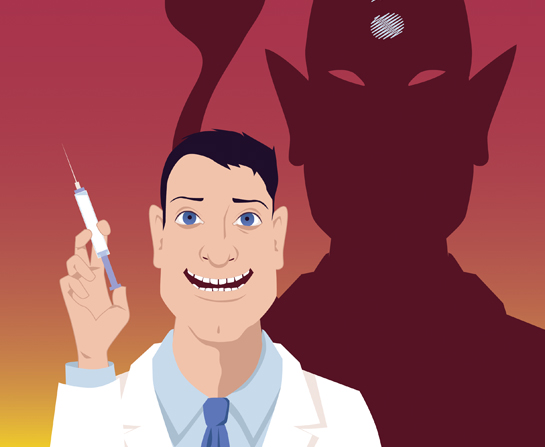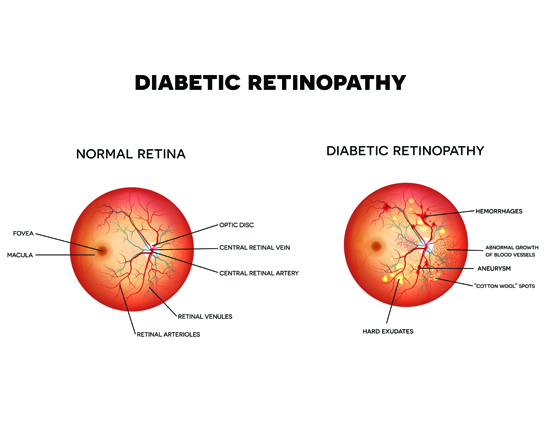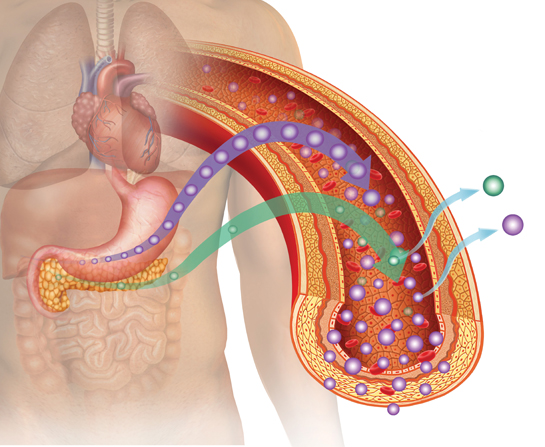Vaccines under Fire
April 28, 2022 Return

Datuk Dr Zulkifli Ismail Consultant Paediatrician & Paediatric Cardiologist
One of Datuk Dr Zulkifli’s closest childhood friends, Johanuddin, contracted polio when he was a child. He was not vaccinated against the wasting disease. Dr Zul, as he is popularly known as, recalls how, when they were children, he would help carry Johanuddin’s school bag for him. Johanuddin spent his early adult days using calipers on his legs, then needing a walking stick and later a crutch, before eventually having to use a wheelchair. As a close friend of that man, Dr Zul knows firsthand how a single vaccination could have prevented a disease that would affect a person for the rest of that person’s life.
Thus, it is not surprising that, in addition to being a paediatrician, Dr Zul is also well-known as a passionate advocate for vaccination as one of the most important means of prevention of selected infectious diseases. Earlier this year, he was involved in the writing and publication of the book Immunisation Controversies: What You Really Need to Know, which addresses common misperceptions harboured by many Malaysians with regard to vaccines. He is also an active key figure in the Malaysian Paediatric Association as well as parenting educational programme Positive Parenting (www.mypositiveparenting.org) and the vaccination education and awareness programme Immunise-4-Life (www.ifl.my).
With his credentials, we at HealthToday can’t think of a more suitable person to put on the hot seat.
#1: USD3.18 billion awarded to people harmed by vaccine.
The US Government established the National Vaccine Injury Compensation Programme (VICP) in 1988. Since that year, the Vaccine Compensation Court has awarded more than 16,000 families claiming to have been harmed by vaccines, for a total award of USD3.18 billion! Isn’t this evidence that vaccines can be harmful?
Dr Zul:
The number may seem frightening, but we need to take a look at the whole picture.
According to the US Health Resources and Service Administration website (which is run by the US government), over 2.5 billion doses of covered vaccines were distributed in that country from 2006 to 2014. There were 3,491 petitions handled by the Court, and 2,224 of these received compensation. This means that about 1 individual is compensated for every 1.2 million doses of vaccine distributed.
If you look at the number, it’s actually small. In fact, this figure is to be expected, as it corresponds to the risk of vaccine adverse events. For example, only one case of severe allergic reaction is reported for every 1 million doses of measles, mumps and rubella (MMR) vaccine distributed.
Therefore, when you see such numbers, there is nothing to be alarmed of. The risk of developing serious side effects is very small, and the doctor will ask you about your health status before administering a shot, in order to minimize this risk.
#2: Hannah Poling’s autism was caused by her vaccines.
We hear a lot about how the so-called research by Dr Andrew Wakefield, which linked vaccines to the development of autism in children, is thoroughly discredited. And yet, in 2008, the VICP awarded Hannah Poling over USD1.5 million when they determined that her autism developed after receiving five vaccines: diphtheria–tetanus–acellular pertussis, Haemophilus influenzae type b (Hib), MMR, varicella, and polio. So, Dr Wakefield is right, after all!
Dr Zul:
Pinpointing the cause of autism is not easy. We do not know, to this day, what the exact causes are, only that it is very possible that several factors can act in combination to give rise to the condition. We cannot simplify things by pinpointing to vaccines alone as the cause of autism.
With regard to Hannah Poling, this is not as clear cut a case as it seemed on paper. Hannah had several medical conditions from young (including frequent episodes of fever and otitis media), and it is possible that her autism may be caused by a combination of factors that may or may not include receiving her vaccines.
As for Dr Wakefield, he was exposed by a journalist, Brian Deer from the UK Sunday Times who had nothing to do with the medical industry (so no bias or self-interest there!), and he was found to have his own personal interests in seeing vaccines discredited. The research methodology used by him was deeply flawed, irreproducible, even fraudulent, and the paper was thoroughly discredited. So, there is no question as to whether he is right – he isn’t, and he is even barred from practicing in the UK, his own country.
There are many research papers, published in respectable journals, which have demonstrated that vaccines do not cause autism. The autism claims are all based on a single paper that has been thoroughly discredited over the years. Which would you rather believe?
#3: Vaccines get recalled for safety reasons.
There are well-documented cases of vaccines being called back or withdrawn from the market due to reports of serious side effects. A rotavirus vaccine, for example, had been recalled after it was linked to intussusception, a rare bowel obstruction condition, among babies. Does this mean that members of the public are ‘guinea pigs’ for these pharmaceutical companies to test their products?
Dr Zul:
Let me start by saying that the way vaccines work has come a long way from what we were taught in school. These days, we have developed conjugate vaccines that stimulate the T-memory cells in our body. This improves the body’s future immune response against the specific infection. Therefore, the vaccines today are better, more efficacious and safer.
On the matter of recalls, again, we need to look at the big picture. The numbers of recalls are very small compared to the number of vaccines being distributed. This is because vaccines are continuously monitored by the manufacturer as well as doctors and other relevant authorities, both before and after the vaccines are in use, and often, recalls are made immediately after a cause for concern is discovered.
The rotavirus vaccine that you mentioned was taken off the market after it was found that it was directly related to intussusception in the babies who had received it. This actually proves that the authorities can force industry to stop distribution and production of any vaccine when there is evidence of severe adverse events.
Also, in Malaysia we usually receive vaccines some time (possibly several years) after they were in use in America or Europe, due to the stringent approval process by our Ministry of Health and other factors. By the time a vaccine is approved, its safety and side effects are already well documented. It goes without saying that only the safe-to-use ones will be approved in this country!
#4:Vaccines are not halal?
Muslims should not be expected to accept non-halal vaccines. It is not right!
Dr Zul:
To Muslims concerned about the halal issue, there is some good news: work is done to produce halal vaccines. While we don’t have release dates for such vaccines, we are getting there!
Meanwhile, the current vaccines may not bear the halal stamp, but Islamic bodies both in Malaysia and the rest of the world have stated that it is fine to use these vaccines.
As a Muslim, I am personally concerned about this matter, for myself, my family and my Muslim patients. I went and found out myself how these vaccines are made. While some vaccines may have ingredients taken from pigs, the end vaccine product contains no pig genetic material due to the manufacturing process that includes dilution and refining. Polymerase chain reaction (PCR) tests on vaccines that use porcine material in their manufacture has revealed no pig DNA in them. This should allay any fears among Muslims in addition to the opinion of scholars.
Furthermore, the Quran states that it is the partaking, or eating, of pork that is forbidden. It does not prohibit the breaking down of porcine elements into molecules to produce a vaccine that will be injected into our body.
#5: Vaccines are optional, not compulsory
Despite claims that it is our responsibility to vaccinate ourselves and our children, the government has not made it compulsory for us to do so. Is the importance of vaccines, therefore, overstated?
Dr Zul:
Making something compulsory is not as simple as just making and passing a law. I am not a politician, so I can only speculate, based on what is happening in the US, where some states require that certain vaccines must be given to children before they can enroll into school.
Some things to consider – do we want to deny children the right to education just because their parents did not arrange for them to be vaccinated? Would such a law only drive the anti-vaxxers more ‘underground’? There is also a need to create a body to address claims filed by people who feel that they have been harmed by vaccines, such as VICP in the US, as well as a compensation policy.
As you can see, making vaccinations compulsory is not so simple. Its implementation can have effects on other aspects of our lives, so everything has to be considered carefully. Therefore, whether or not vaccination is made compulsory does not change the fact that it is still an important preventive measure against potentially deadly infections. There is no need to fear vaccination. After all, vaccines sitting on shelves don’t save lives, vaccination does!
References:
The New England Journal of Medicine. Available at www.nejm.org.
US Centers for Disease Control and Prevention. Available at www.cdc.gov.
US Health Resources and Service Administration. Available at www.hrsa.gov.
If you like this article, do subscribe here.






